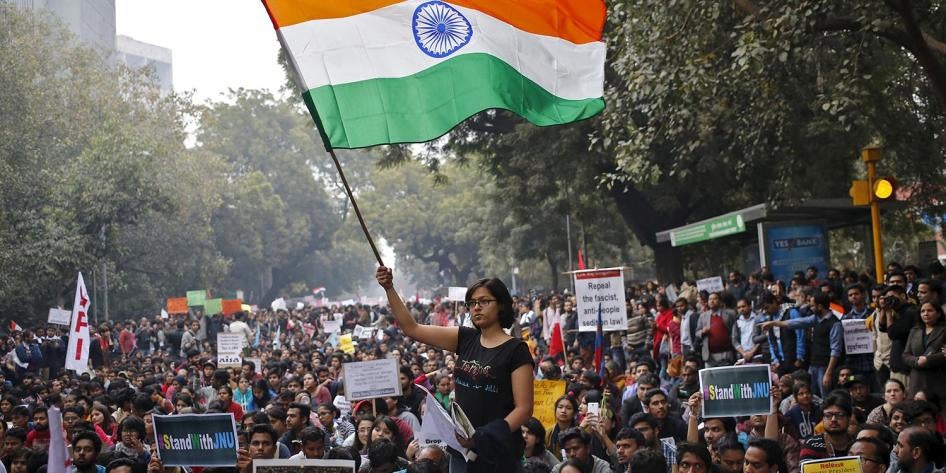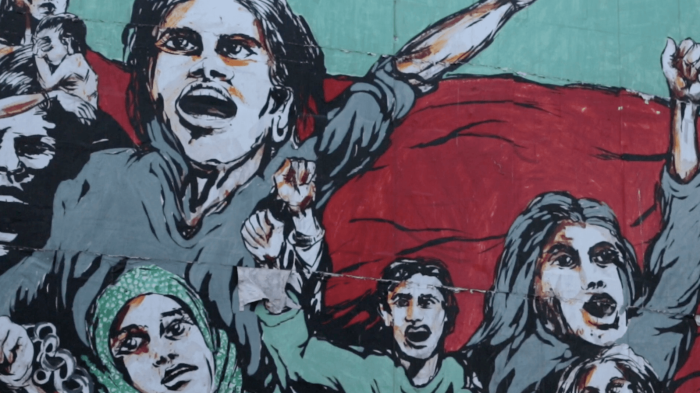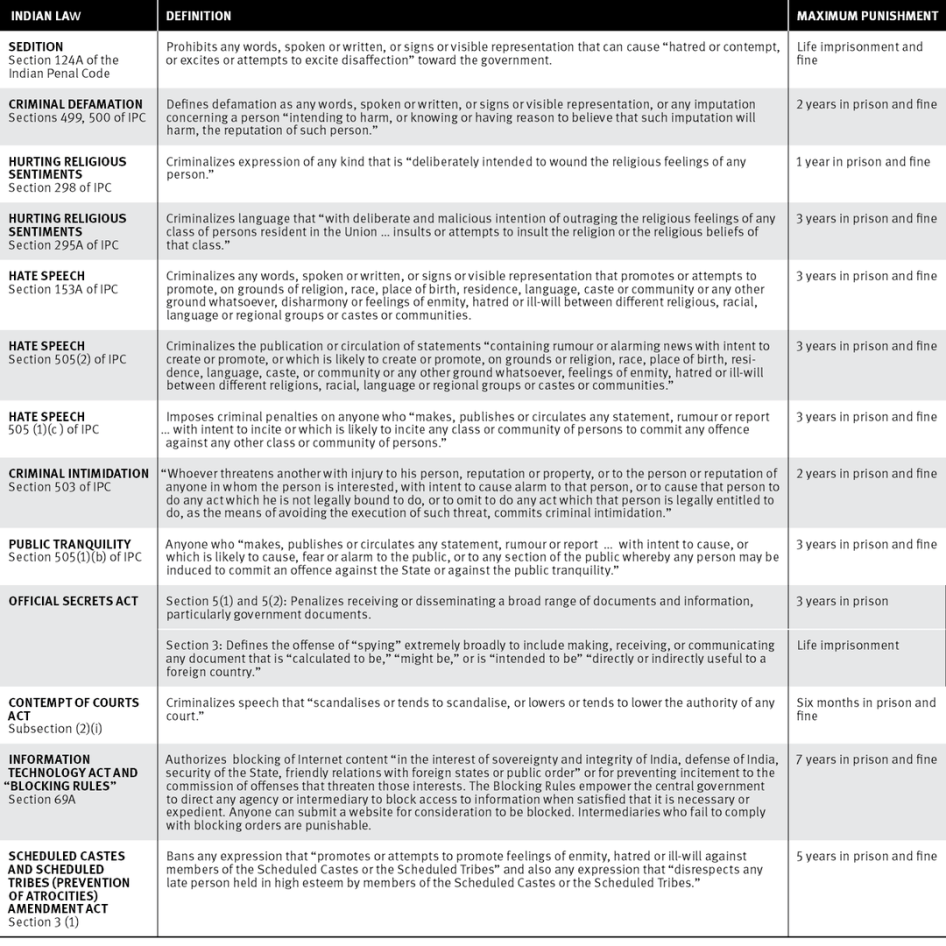(New Delhi) – The Indian authorities routinely use vaguely worded, overly broad laws as political tools to silence and harass critics, Human Rights Watch said in a new report released today. The government should repeal or amend laws that are used to criminalize peaceful expression.
India’s Constitution protects the right to freedom of speech and expression, but recent and colonial-era laws, such as sedition and criminal defamation, not only remain on the books but are frequently used in an attempt to clampdown on critics.
“India’s abusive laws are the hallmark of a repressive society, not a vibrant democracy,” said
Meenakshi Ganguly, South Asia director at Human Rights Watch. “Putting critics in prison or even forcing them to defend themselves in lengthy and expensive court proceedings undermines the government’s efforts to present India as a modern country in the Internet age committed to free speech and the rule of law.”
The 108-page report, “Stifling Dissent: The Criminalization of Peaceful Expression in India,” details how criminal laws are used to limit and chill free speech in India. It documents ways overbroad or vague laws are used to stifle political dissent, harass journalists, restrict activities by nongovernmental organizations, arbitrarily block Internet sites or take down content, and target marginalized communities, particularly Dalits, and religious minorities.
The report is based on an in-depth analysis of various provisions of the Indian Penal Code, including laws on sedition, criminal defamation, hate speech, and hurting religious sentiment, as well as the Official Secrets Act, Information Technology Act, and Contempt of Courts Act. It is based on interviews with defendants and targets, civil society activists, journalists, and lawyers. It includes public statements by the government, court documents, and media accounts of criminal proceedings against those involved in peaceful speech activities or peaceful assembly.
One of the most abused laws is the sedition law, which has been used by successive governments to arrest and silence critics. Section 124A of the Indian Penal Code prohibits any words, spoken or written, or any signs or visible representation that can cause “hatred or contempt, or excites or attempts to excite disaffection,” toward the government. While India’s Supreme Court has imposed limits on the use of the sedition law, making incitement to violence a necessary element, police continue to file sedition charges even in cases where this requirement is clearly not met.
Most recently, the abuse of the sedition law became subject of national debate after
Kanhaiya Kumar, a student union leader at the Jawaharlal Nehru University in Delhi, was arrested for sedition on February 12, 2016. The government acted on complaints by members of the student wing of the ruling Bharatiya Janata Party, who accused Kumar of making anti-national speeches during a meeting organized on campus. India’s minister for home affairs warned that those who shouted anti-India slogans and challenged India’s sovereignty and integrity during these meetings “
will not be tolerated and spared.” Two more students were arrested for sedition in the same case, while three others were booked. The court granted a six-month interim bail after the police’s admission that they had no evidence of anti-national sloganeering by Kumar, and certainly no evidence of incitement to violence. The government, however, failed to admit that the arrests were wrong.
In October 2015, authorities in Tamil Nadu state arrested folk singer
S. Kovan under the sedition law for two songs that criticized the state government for allegedly profiting from state-run liquor shops at the expense of the poor.
In a controversial and disappointing verdict, in May 2016, India’s Supreme Court upheld the constitutionality of criminal defamation law saying, “A person’s right to freedom of speech has to be balanced with the other person’s right to reputation.” However, the court did not explain how it concluded that the law does not violate international human rights norms, which call for abolishment of criminal defamation, or offer a clear or compelling rationale as to why civil remedies are insufficient for defamation in a democracy with a functioning legal system.
The frequent use of criminal defamation charges by the Tamil Nadu state government, led by Chief Minister Jayalalithaa, against journalists, media outlets, and rival politicians shows how laws can be used to silence critics of the government. The Tamil Nadu government reportedly filed nearly 200 cases of criminal defamation between 2011 and 2016. For instance, the Tamil-language magazines
Ananda Vikatan and
Junior Vikatan, both published by the Vikatan group, face charges in 34 criminal defamation cases, including for a series of articles assessing the performance of each cabinet minister.
Criminal defamation laws should be abolished because they can lead to very harsh consequences, including imprisonment, Human Rights Watch said, a view
endorsed by the United Nations Human Rights Committee and various special rapporteurs on human rights.
“Sedition and criminal defamation laws are routinely used to shield the powerful from criticism, and send a message that dissent carries a high price,” Ganguly said.
Prime Minister Narendra Modi has frequently said he and his government are committed to upholding the right to freedom of speech. “Our democracy will not sustain if we can’t guarantee freedom of speech and expression,” he
said in June 2014. Yet the Modi government has not only failed to address laws which are frequently used to crush these rights, but has used them, as did previous governments, to treat criticism as a crime. His government argued in the Supreme Court for retention of criminal defamation law, saying without offering a compelling explanation that monetary compensation through civil lawsuits is not a sufficient remedy for damage to a person’s reputation.
Successive Indian governments have failed to protect freedom of expression despite repeated reminders by the courts that it is the state’s responsibility to maintain law and order and that threats to public order cannot be grounds to curtail speech.
While some prosecutions involving sedition, criminal defamation, and other laws documented in the report were dismissed or abandoned in the end, many people who have engaged in nothing more than peaceful speech have been arrested, held in pretrial detention, and subjected to expensive criminal trials. Fear of such actions, combined with uncertainty as to how the statutes will be applied, leads to a chilling environment and self-censorship.
The Indian government should review all these laws, and repeal or amend them to bring them into line with international law and India’s treaty commitments, Human Rights Watch said. Many countries in the region also have anachronistic British colonial laws on the books, and India should lead reform efforts.
“India’s courts have largely been protective of freedom of expression but as long as you have bad laws on the books, free speech will remain under threat,” said Ganguly. “It is an enormous irony that India projects itself worldwide as a government embracing technology and innovation, yet is relying on century-old laws to clamp down on critics. India has an opportunity and the responsibility to launch reforms immediately, which could set a positive example to other countries in the region similarly bogged down by antiquated laws.”
Recommendations for India:
- Develop a clear plan and timetable for the repeal or amendment of laws that criminalize peaceful expression;
- Drop all pending charges and investigations against those who are facing prosecution for the exercise of their right to freedom of expression and assembly; and
- Train the police to ensure inappropriate cases are not filed with courts. Train judges on peaceful expression standards so that they dismiss cases that infringe on protected speech.











